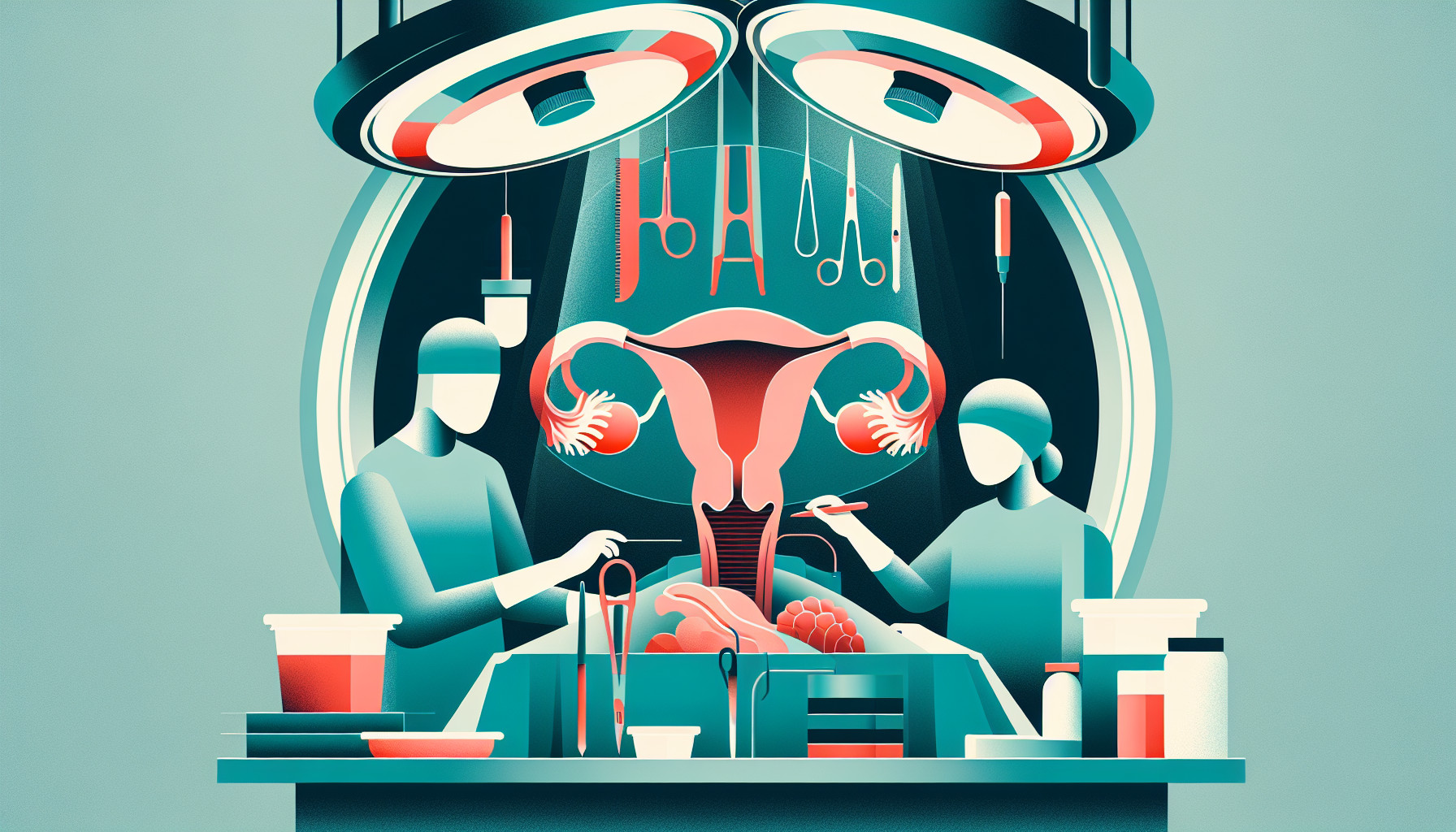Our Summary
This research paper discusses the prevention of breast cancer and tubo-ovarian cancer in women who carry certain genetic variants (BRCA1 or BRCA2). Women with these genes have a high lifetime risk of developing these cancers. The paper specifically looks at the effectiveness of a certain preventative surgery (risk-reducing bilateral salpingo-oophorectomy or rrBSO), which is known to reduce the risk of tubo-ovarian cancer.
The question the researchers are trying to answer is whether this same surgery also reduces the risk of breast cancer. Previous studies suggested that it did, and so many international guidelines recommend this surgery for women carrying these genetic variants. However, these early studies may have been flawed, and overestimated the protective benefits of the surgery.
More recent studies have given mixed results. These studies were designed to minimize the biases and confounding factors that may have skewed the results of earlier research.
In simple terms, the paper concludes that, at present, there’s no clear evidence to suggest that this preventative surgery can reduce the risk of breast cancer in women carrying BRCA1 or BRCA2 genetic variants.
FAQs
- What is the purpose of the risk-reducing bilateral salpingo-oophorectomy surgery discussed in the paper?
- Can this preventative surgery reduce the risk of breast cancer in women carrying BRCA1 or BRCA2 genetic variants?
- Why are the results from previous studies about the effects of the surgery on breast cancer risk seen as potentially flawed?
Doctor’s Tip
A helpful tip a doctor might give a patient considering salpingo-oophorectomy is to thoroughly discuss the potential risks and benefits of the surgery, including its impact on the risk of breast cancer. It’s important to make an informed decision based on the most up-to-date and accurate information available.
Suitable For
Therefore, patients who are typically recommended salpingo-oophorectomy are those who carry BRCA1 or BRCA2 genetic variants and have a high lifetime risk of developing tubo-ovarian cancer. It is important for these patients to discuss the risks and benefits of the surgery with their healthcare provider to make an informed decision about their treatment options.
Timeline
Before salpingo-oophorectomy:
- Patient undergoes genetic testing to determine if they carry BRCA1 or BRCA2 genetic variants
- Patient may receive counseling about their risk of developing breast and tubo-ovarian cancer
- Patient may undergo regular screenings such as mammograms and transvaginal ultrasounds
- Patient may consider risk-reducing medications or other preventative measures
After salpingo-oophorectomy:
- Patient undergoes surgery to remove their fallopian tubes and ovaries
- Patient may experience side effects such as menopausal symptoms
- Patient may need hormone replacement therapy to manage menopausal symptoms
- Patient may continue to undergo regular screenings for breast cancer
- Patient may need to follow up with their healthcare provider regularly for monitoring and support.
What to Ask Your Doctor
Some questions a patient should ask their doctor about salpingo-oophorectomy include:
- What are the potential benefits of undergoing a risk-reducing bilateral salpingo-oophorectomy (rrBSO) for women with BRCA1 or BRCA2 genetic variants?
- What are the potential risks and complications associated with this surgery?
- How will this surgery impact my hormonal levels and menopausal symptoms?
- Are there alternative risk-reducing strategies or treatments available for women with BRCA1 or BRCA2 genetic variants?
- How often should I undergo screenings or follow-up appointments after undergoing a rrBSO?
- Are there any specific lifestyle changes or preventive measures I should consider to reduce my risk of breast cancer?
- How can I access genetic counseling or support services to help me make an informed decision about this surgery?
- Are there any ongoing clinical trials or research studies investigating the effectiveness of rrBSO in reducing the risk of breast cancer for women with BRCA1 or BRCA2 genetic variants?
- How will this surgery impact my fertility and reproductive options in the future?
- Can you provide me with any additional resources or information to help me better understand the potential implications of this surgery on my overall health and well-being?
Reference
Authors: Conduit C, Milne RL, Friedlander ML, Phillips KA. Journal: Cancer Prev Res (Phila). 2021 Nov;14(11):983-994. doi: 10.1158/1940-6207.CAPR-21-0141. Epub 2021 Aug 4. PMID: 34348913
